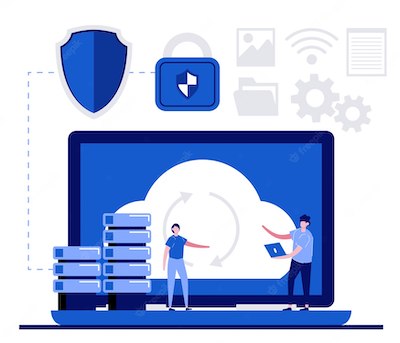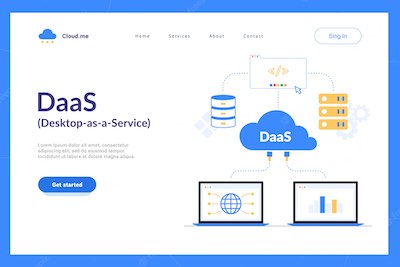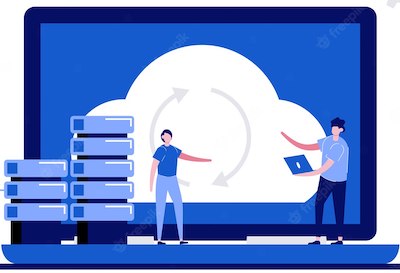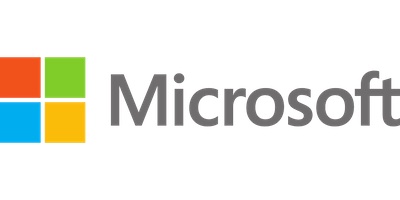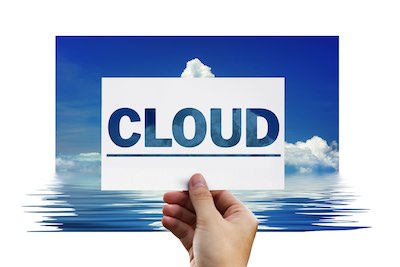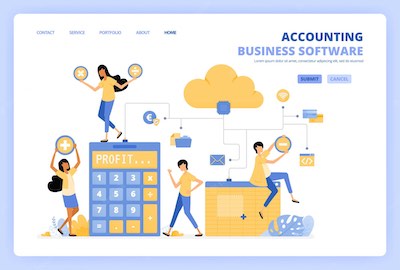 Cloud accounting services have become increasingly popular in recent years. While the majority of businesses still operate using basic bookkeeping methods, many others are opting for cloud accounting services to manage their finances instead. It’s not hard to see why. Cloud accounting services offer several benefits over traditional methods, including improved visibility, cost efficiency, and scalability. If you’re thinking of switching from manual bookkeeping to a cloud-based solution, this blog post will provide insight into cloud accounting services and how they work.
Cloud accounting services have become increasingly popular in recent years. While the majority of businesses still operate using basic bookkeeping methods, many others are opting for cloud accounting services to manage their finances instead. It’s not hard to see why. Cloud accounting services offer several benefits over traditional methods, including improved visibility, cost efficiency, and scalability. If you’re thinking of switching from manual bookkeeping to a cloud-based solution, this blog post will provide insight into cloud accounting services and how they work.
What is Cloud Accounting?
Cloud accounting is an online service that facilitates the management of financial operations. It typically involves the use of a software-as-a-service (SaaS) solution hosted on a cloud platform that allows you to record and track financial data. Cloud accounting allows businesses to automate and simplify their accounting processes. You can use it to track sales, manage expenses, analyse profit and loss, and more. By switching to cloud accounting, you can gain real-time visibility into your financial data and easily collaborate with your team members. Cloud accounting services allow you to store your data in the cloud so that it can be accessed from anywhere by any device. By using cloud software, you’ll have the ability to access your data whenever you need to without having to install software on your computer.
How Does Cloud Accounting Work?
Cloud accounting services are built to be easy to use and quick to set up. Once you’ve signed up for a plan and connected your payment details, you can start adding and entering your transactions. To add a transaction, you’ll simply log into your account and select the date of the transaction. You can then add the type of transaction, the amount, and a description. As you add more transactions, the software will automatically pull them together and create a statement for you. This means you don’t have to enter the data manually and can instead just approve the statement and move on. Cloud accounting services often connect to your bank and other financial accounts to help you enter your data. For example, you may be able to connect your credit card account to your cloud accounting software and then click “create a new transaction” to automatically enter the details of your purchases in real-time.
Why Should You Consider Switching to Cloud Accounting?
Cloud accounting services offer many benefits over manual bookkeeping methods. These include improved visibility, cost efficiency, scalability, and ease of use. Visibility into your financial data is critical. If you’re using manual methods, you may have a hard time pulling your data together quickly and accurately. In contrast, cloud accounting services allow you to deliver real-time visibility into your financial data. You’ll be able to see how much money you’ve brought in, how much you’ve spent, and what your profit and loss are. This will allow you to make informed decisions quickly. Cost efficiency is another major benefit of cloud accounting services. Cloud accounting services are often offered as a subscription service, which means you pay a flat fee each month. This is usually cheaper than hiring an accountant or taking on an outside bookkeeping service. Because you don’t have to worry about managing hardware and software, the cloud solution will also save you time. Scalability is another advantage of cloud accounting services. Since you’re not managing hardware, you can expand your business easily without needing to buy more hardware or software. Cloud accounting services are often designed to scale your business so that your financial operations can keep up with your growth. Finally, many cloud accounting services are easy to use and set up. You won’t need to spend a ton of time learning the software or training your employees to use it effectively.
Switching to Cloud Accounting
If you’re thinking of switching to cloud accounting, there are a few things to keep in mind. First, evaluate the different cloud accounting solutions available to find the best one for your business. You may want to consider factors such as cost, additional features, customer reviews, and ease of use. Next, make sure your team members are on board with the decision to switch to cloud accounting. If you’ve never used cloud accounting before, there may be a learning curve. By setting up regular training sessions, you can help your team members get up to speed quickly. Finally, prepare for the switchover by collecting all the data you’ll need for your financial statements. This includes things like bank account logins, credit card data, and other information. Once you’re switched over to the new system, you won’t have time to go back and find it all.
Popular Cloud-Based Services: Xero and QuickBooks Online
If you’re thinking about switching to cloud accounting, you have several options available to you. Xero and QuickBooks Online are two of the most popular cloud accounting services available. They each offer unique features and have millions of users. If you’re not sure which one to choose, consider your business needs and the following comparison. Xero is a New Zealand-based company that offers a variety of accounting solutions, including Bookkeeping, Accounting, GST, and Payroll. Xero offers easy-to-use online software that can be accessed from anywhere and supports multi-user functionality. Because it’s cloud-based, Xero is accessible from any device, and all data is automatically synced between users. QuickBooks, on the other hand, is a trusted name in accounting software that has been around for more than 30 years. QuickBooks offers a subscription-based accounting solution that integrates with your bank accounts, credit cards, and other financial accounts.
Constant Sync with Real-Time Data
Real-time data syncing is a major benefit of cloud accounting services. Instead of waiting for your bank to push your data, cloud accounting services allow you to enter data as soon as it happens. This means you’ll have access to your financial data as soon as the transaction has happened. This level of immediacy makes it easier to track and manage your money. When you’re using manual bookkeeping methods, you have to log all of your transactions, which can be a time-consuming process. With real-time data syncing, you can use automatic transactions to enter your data for you and save time. Plus, you don’t have to worry about entering the data incorrectly or omitting something.
Save Time Through Automation
If you rely on manual bookkeeping methods, you likely spend a significant amount of time collecting, entering, and reviewing your financial data. With manual methods, you have to log each transaction and then input it into your system. Cloud accounting services allow you to automate many of your data entry tasks to save time. For example, you can set up automatic transactions that apply the same amount to all of your expenses each month. You can also set up automatic payments so that you’re not having to log into your accounts and make these payments manually. Automating your financial data can help you save time and focus on other parts of your business.
Enhanced Security Measures
Managing your financial data on a local computer can be risky, as it’s vulnerable to cyber attacks, malware, and other security risks. Cloud accounting services take a proactive approach to security and go above and beyond to protect your data. Cloud providers keep their networks up to date with the latest security patches, use firewalls that actively monitor traffic, and implement other security measures. This helps keep your data secure and out of the hands of malicious third parties. With manual methods, you’re responsible for securing your data and protecting your computer. With cloud accounting services, you don’t have to worry about these things, as it’s the cloud provider’s job to protect your data.
Conclusion
Cloud accounting services have become increasingly popular in recent years. While the majority of businesses still operate using basic bookkeeping methods, many others are opting for cloud accounting services to manage their finances instead. It’s not hard to see why. Cloud accounting services offer some benefits over traditional methods, including improved visibility, cost efficiency, and scalability. If you’re thinking of switching from manual bookkeeping to a cloud-based solution, this blog post will provide insight into cloud accounting services and how they work.

